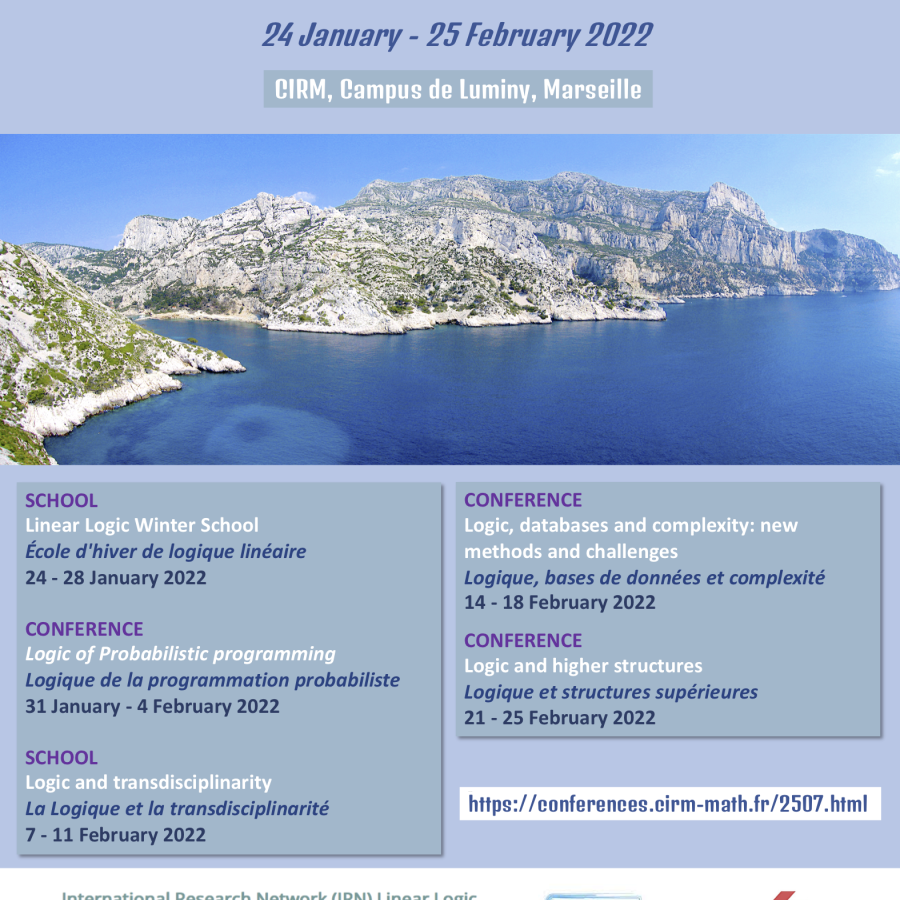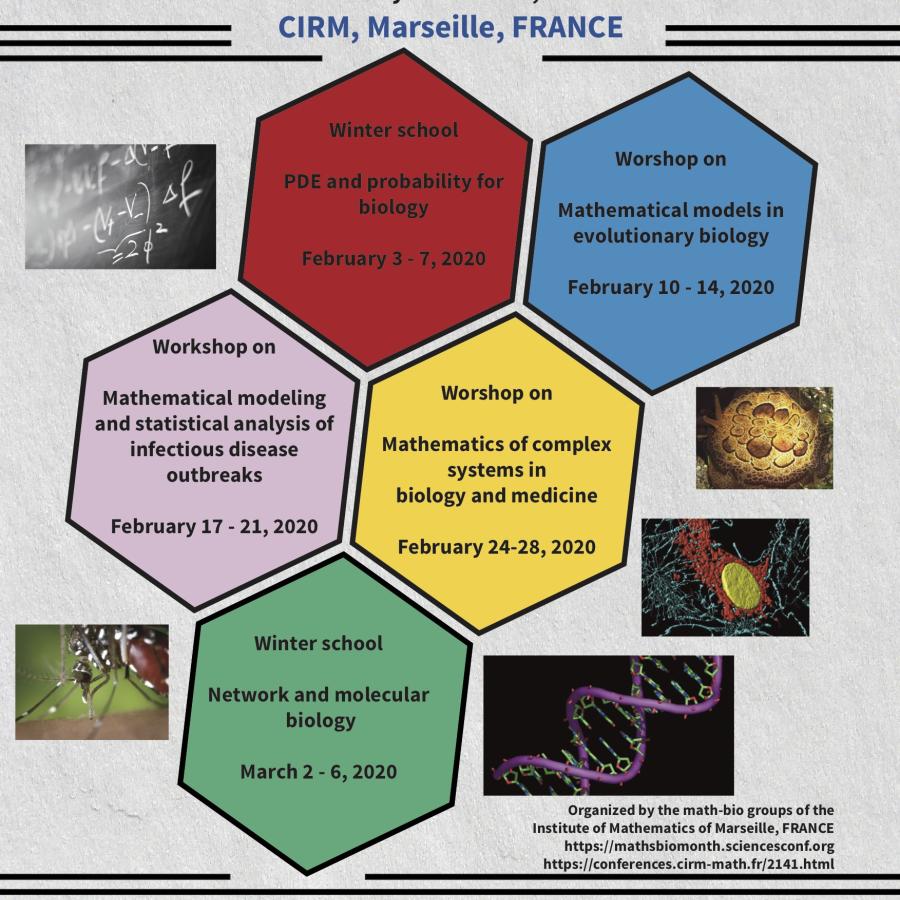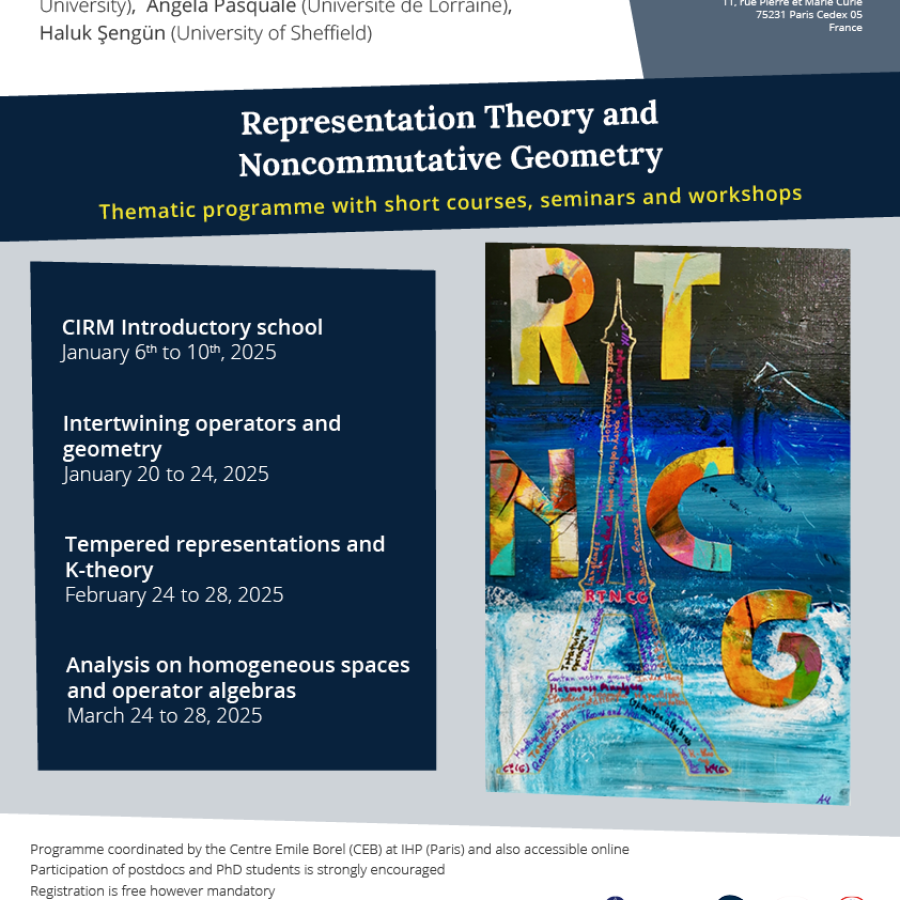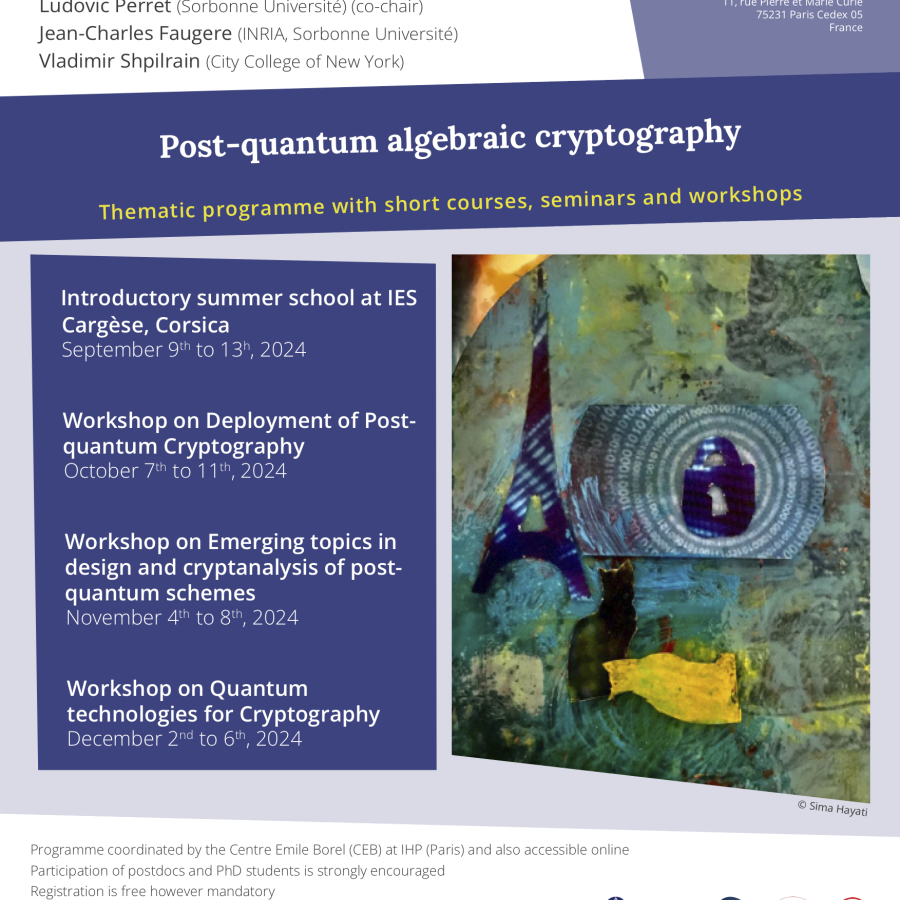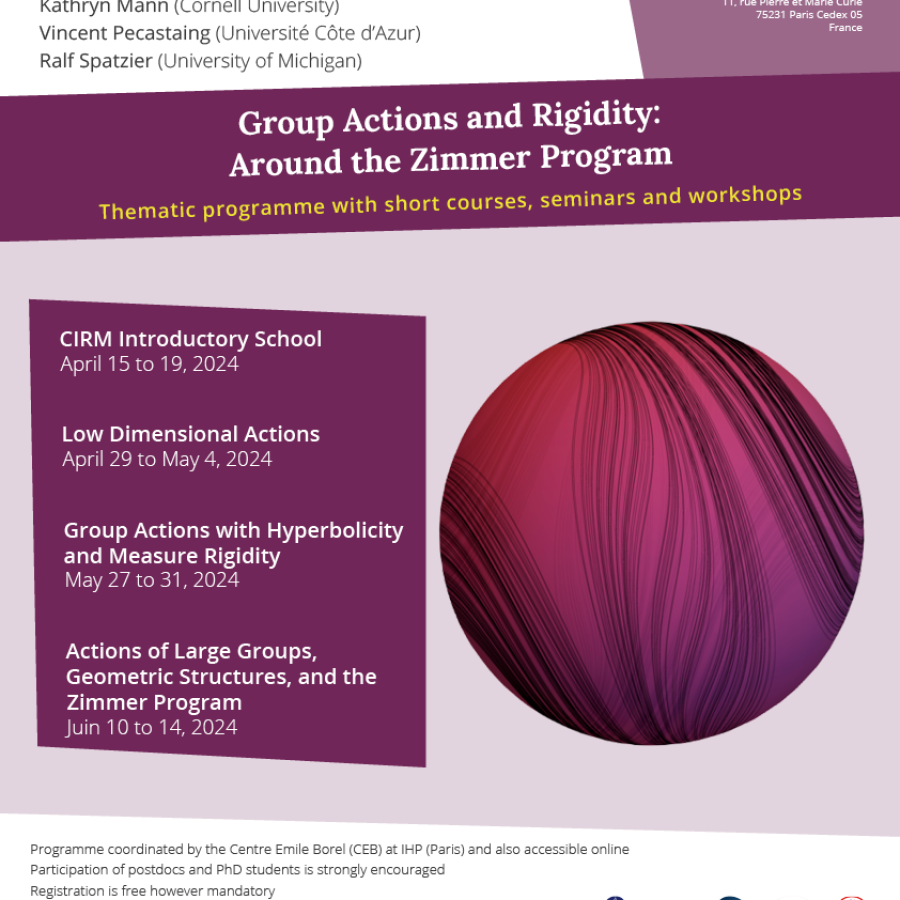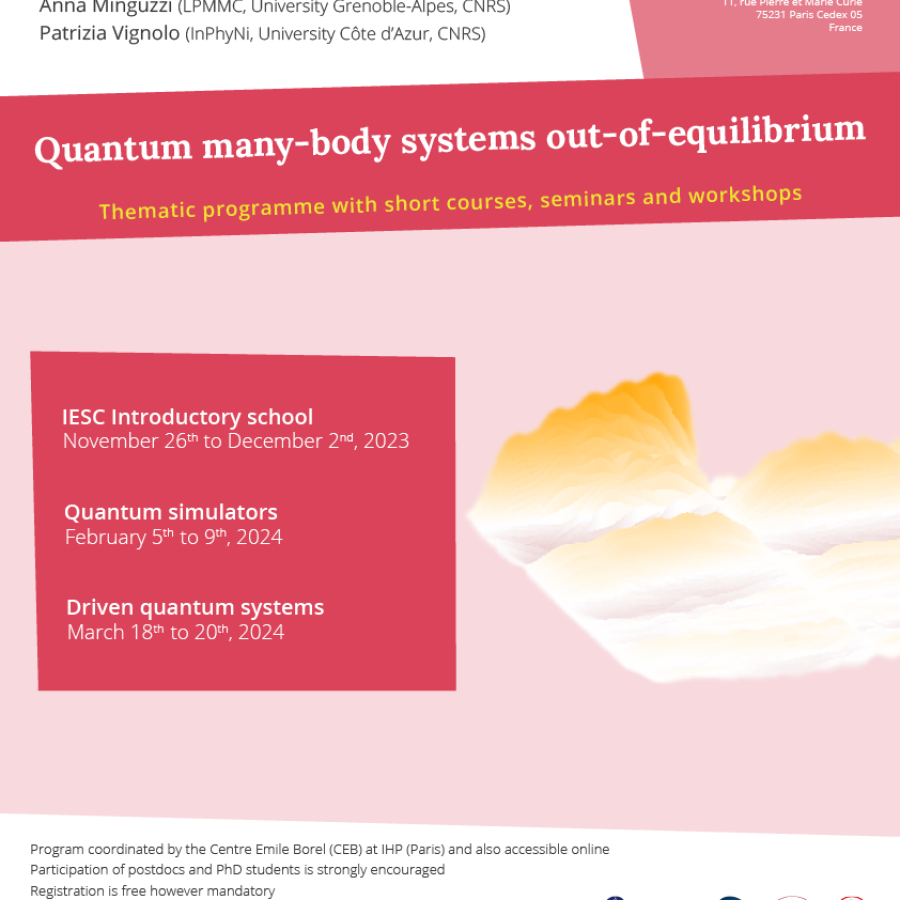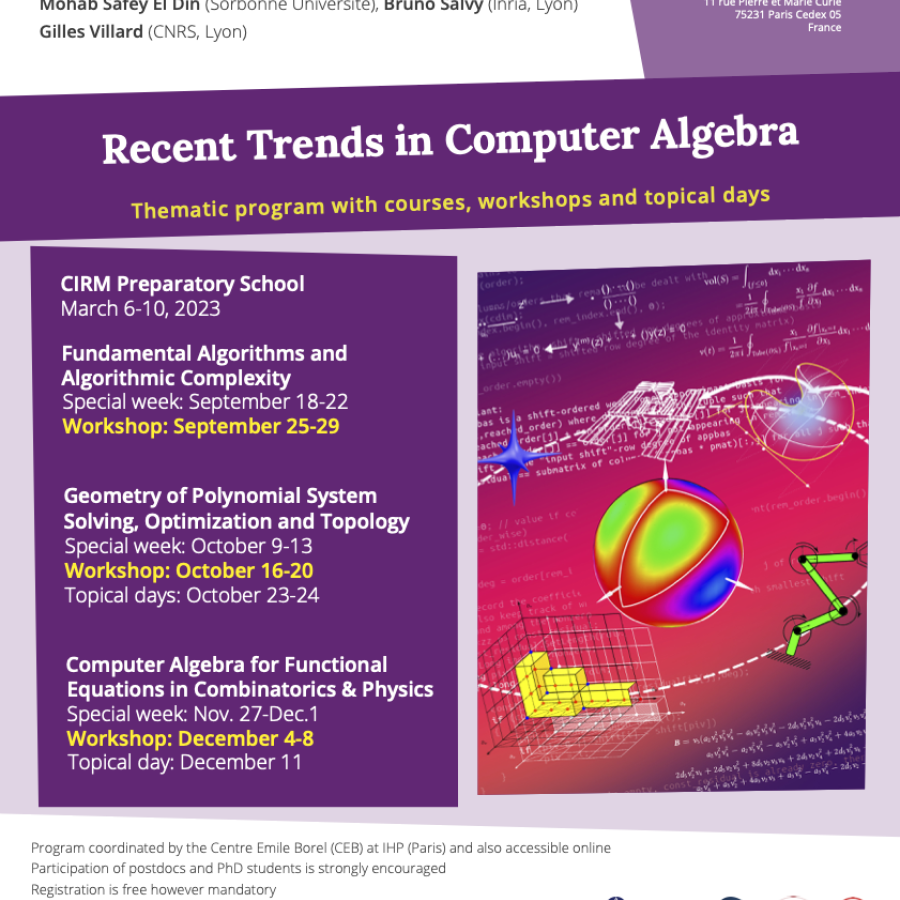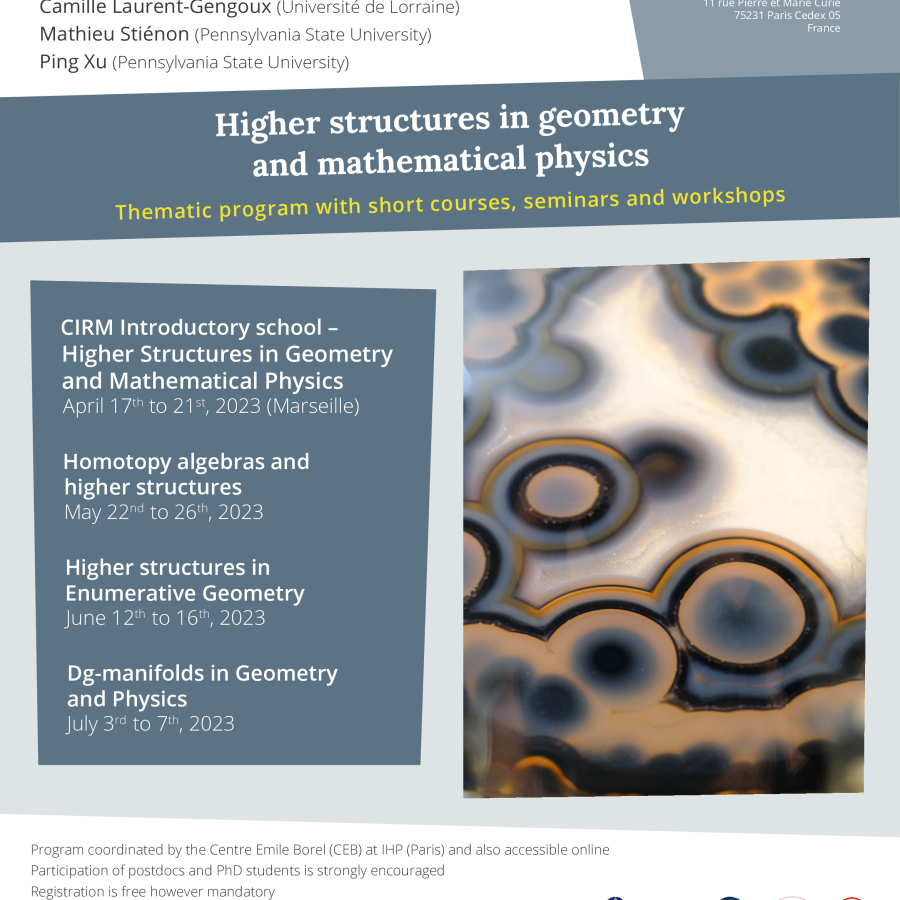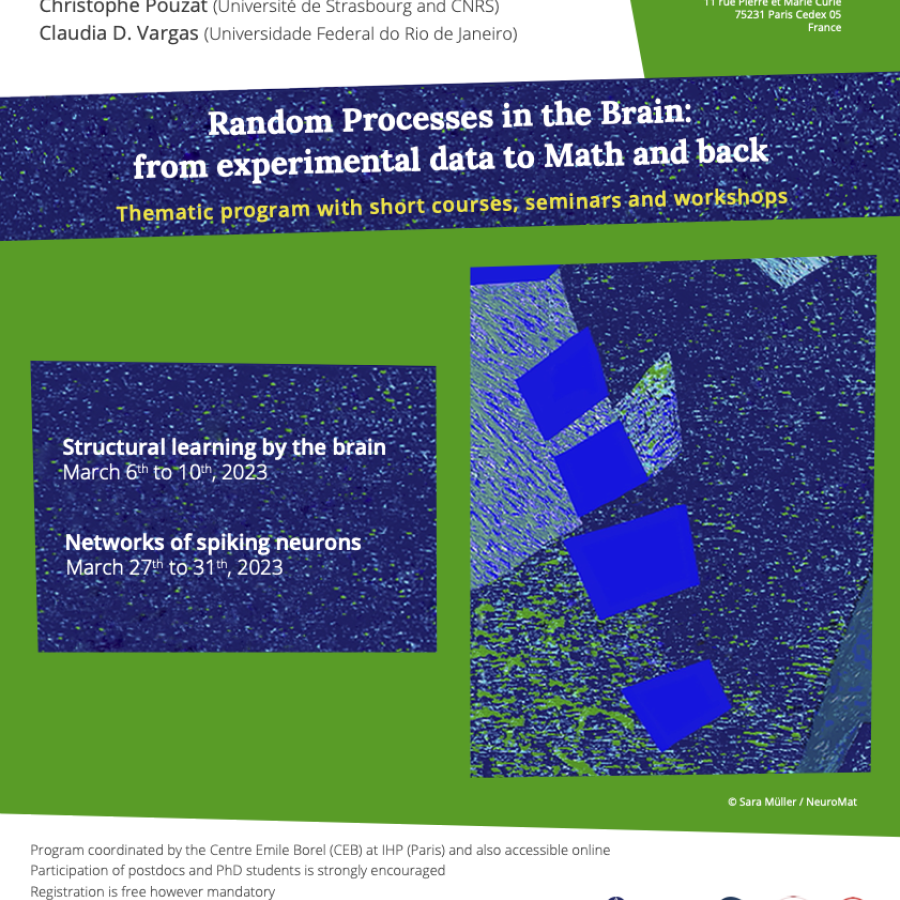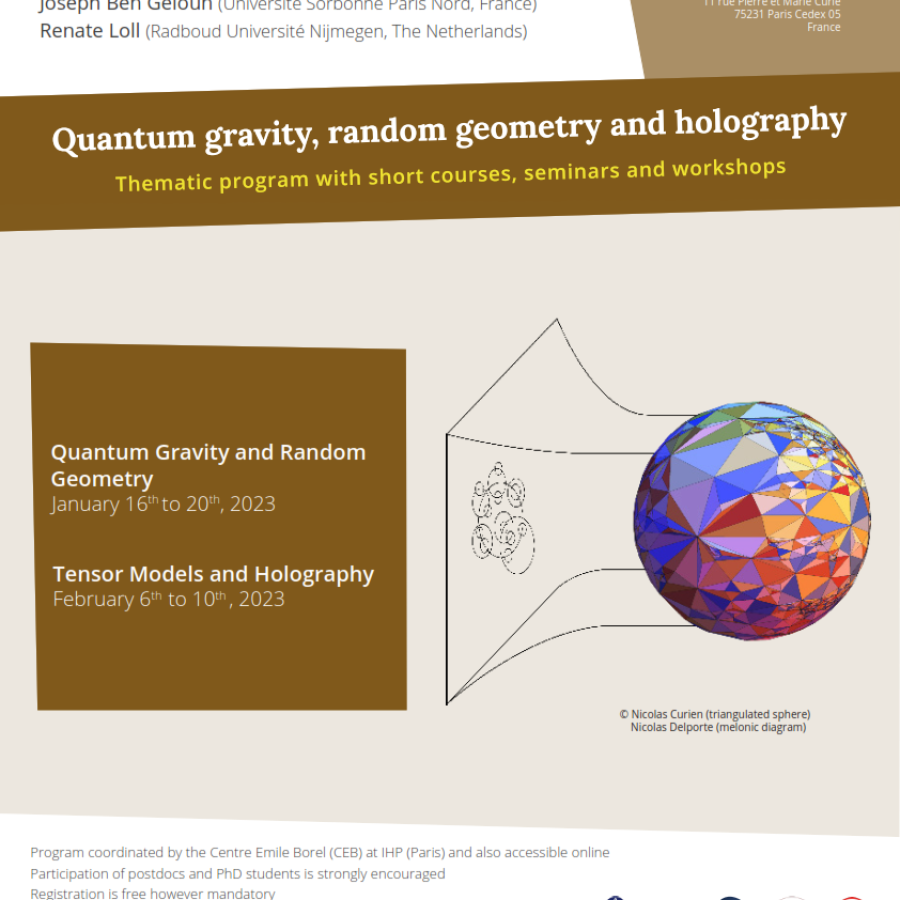The thematic month Logic and Interations 2022 is an event proposed by the Logique de la Programmation group of the I2M, in relation with the LIS, the PPS group at IRIF, the logic group of Roma Tre university to enumerate the main partners. The goal is to establish the state of the art, train young researchers, open new research collaborations and trails in the domain of interactions between logic, philosophy and theoretical computer science, and more precisely between proof theory and formal methods.
News and events
Mathematical Issues in Biology
This residential month is along the lines of former sessions organized at CIRM each February since 2001 by a group of Marseille researchers. In February 2020, the members of the Institute of Mathematics of Marseille involved in collaborations with biologists propose to gather researchers from around the world, at CIRM, around the theme of Mathematical Biology. The interplay between mathematics and biology has developed rapidly since the last decades of the 20th century, both in France and in all developed countries.
Quantum many-body systems out-of-equilibrium
The theoretical study of quantum many-body systems is a challenging task due to the amazing complexity induced by the huge number of degrees of freedom of these systems. Equilibrium properties of such systems have been deeply studied in the last decades. In particular, at one-dimension, it is possible for some systems to have access to exact solutions, for instance, within Bethe Ansatz methods. Where exact solutions are not accessible, it is possible to use field theoretical approaches or numerical techniques.
Higher Structures in Geometry and Mathematical Physics
Higher structures, in particular homotopy algebras, have appeared in many branches of mathematics and particularly in mathematical physics ranging from deformation theory, derived geometry, enumerative geometry, representation theory, homotopy algebras, Poisson geometry and quantization, mirror symmetry, noncommutative algebraic geometry, string theory and quantum field theory. This IHP trimester aims to promote interaction between mathematicians, physicists and groups working on related areas from different aspects.
Quantum Gravity, Random Geometry and Holography
The scope of the program is to bring together researchers who are working on quantum gravity from various perspectives and approaches, with an emphasis on the random geometry point of view and on more recent holographic developments. The main goal is to intensify the fruitful interactions between the researchers in these and related communities in order to make significant progress on the outstanding problems in quantum gravity.


